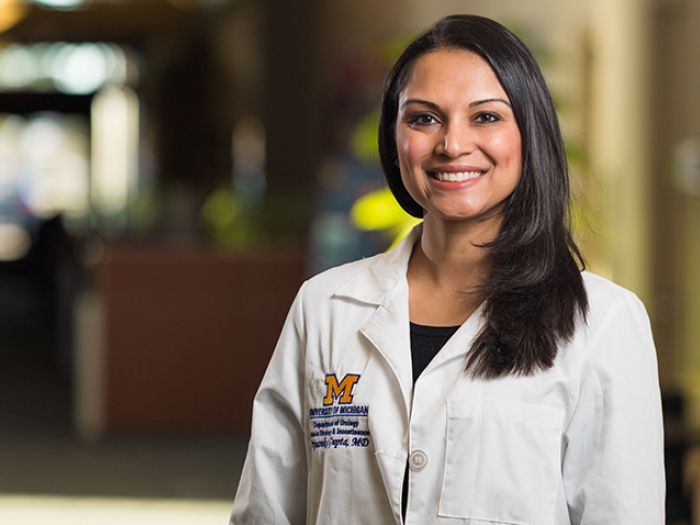A new study finds potential to help adolescents and young adults transition to healthy sex lives after cancer treatment ends.
7:00 AM
Author |

When an adolescent or young adult undergoes cancer treatment, the goal is to become cancer-free and move on to live a healthy, productive life.
MORE FROM THE LAB: Subscribe to our weekly newsletter
But after treatment ends, it's not always so simple.
A new study looked at issues related to sexual functioning in young adults treated for cancer and found both men and women reported difficulties related to sex for up to two years after diagnosis.
Bradley J. Zebrack, Ph.D., MSW, MPH, professor of social work at the University of Michigan Rogel Cancer Center, was the principal investigator for the study, which was published in Cancer.
He explains why healthy sex lives should be part of the discussion during and after cancer treatment.
It's important for cancer care providers to have open discussions with young people about how cancer is affecting them in different aspects of their lives.Bradley J. Zebrack, Ph.D., MSW, MPH
Why was it important to study younger patients and sexuality?
Zebrack: We looked at patients who were between 18 and 39 years old. On the younger end of the range especially, it is possible the patient has little or no experience with sex. Dealing with sex and sexuality as a young person is hard enough even when you don't have cancer. There are so many ways the effects of treatment can have long-term implications.
Can you give some examples of long-term issues younger patients might face?
Zebrack: A patient might have reduced or no interest in sex. It's possible something physiologically is going on that needs medication. The stress from treatment might reduce the ability to feel sexual or physically attractive. That's psychological, and counseling with a mental health professional might be able to help.
What were your key findings in the study?
Zebrack: One of the most important takeaways was that young patients reported effects on their sexual functioning as long as two years after diagnosis. This might be because no health care provider asked them about it over the course of treatment. They're young and don't necessarily know to ask or how to deal with something like this.
SEE ALSO: An Unwelcome Interruption: Cancer Harms Both Health and Social Lives of Young People
Were both women and men affected?
Zebrack: Yes, but in different ways. Women were more likely to report problems with sexual functioning. When men did report problems they were more likely than women to be distressed by them. Another interesting finding is that being married or in a committed relationship was more problematic for women than for men in terms of sexual functioning. Gender definitely plays a role here and could be related to how men and women view sex and relationships.
What can young cancer patients do to address long-term issues with sexual functioning?
Zebrack: The study findings tell us that it's important for cancer care providers to have open discussions with young people about how cancer is affecting them in different aspects of their lives. And, they can't just ask about sexual problems once. It needs to be a topic of conversation at various times throughout treatment. This requires trust between the patient and the care team.
We know that cancer and its treatment impacts young people and their sex lives. If a patient doesn't feel comfortable discussing sex with their doctor or the doctor doesn't bring up the issue of sex, having a conversation with a trained mental health professional such as an oncology social worker or sex therapist can be helpful.
What is next in the research on young cancer patients and sex?
Zebrack: This study and other research are giving us a body of work that is starting to guide us on what interventions might be helpful for younger cancer patients. Not everyone needs or wants a support group and is going to benefit from it. Not everyone needs a counselor or sex therapist.
These studies are helping us deliver precision medicine by identifying the patients who are most likely to benefit from varying levels of psychosocial support and at the times when they most need that support.

Explore a variety of health care news & stories by visiting the Health Lab home page for more articles.

Department of Communication at Michigan Medicine
Want top health & research news weekly? Sign up for Health Lab’s newsletters today!





